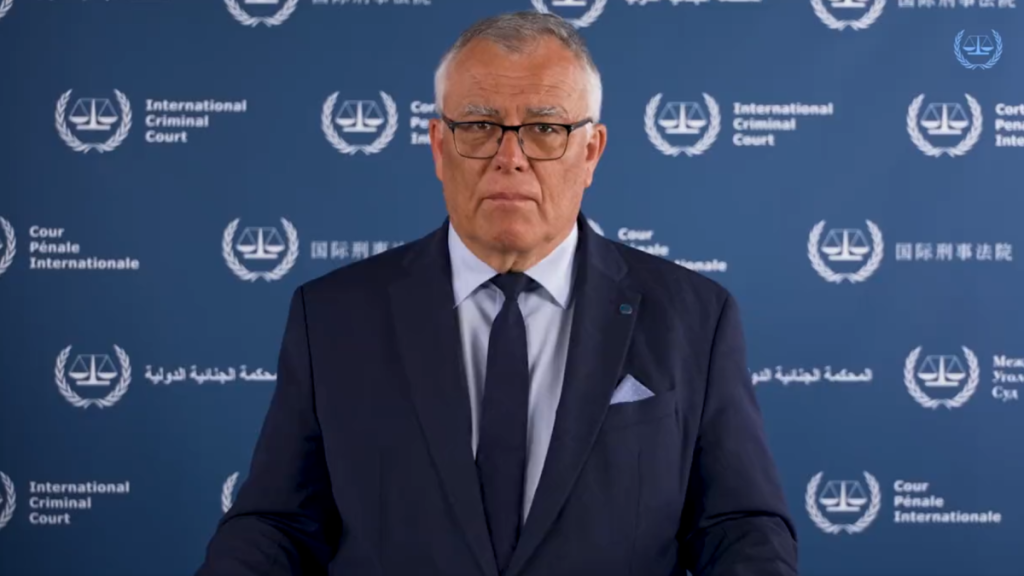On 27 May 1999, amid NATO bombing of Serbia, then Yugoslav President Slobodan Milošević had been indicted for war crimes and a warrant issued for his arrest. Two years later, on 28 June 2001, a new, pro-Western Serbian government sent the former country’s leader to The Hague for trial on charges of crimes against humanity and war crimes. Will Russian President Vladimir Putin have the same fate as the late President of Serbia and Yugoslavia?
Just hours after China’s Foreign Ministry announced that President Xi Jinping will pay a state visit to Russia from March 20 to 22, the International Criminal Court (ICC) in The Hague has issued arrest warrants for Vladimir Putin and his children’s rights commissioner, Maria Alekseyevna Lvova-Belova, for the “unlawful deportation” of Ukrainian children. Such a move represents a strong message the West has sent to both Russia and China.
Since Beijing has not yet ratified the Rome Statute, and is not a member of the International Criminal Court, Xi does not have reasons to cancel his visit to Moscow. Politically, however, the arrest warrant for Putin is a clear signal not only to the Chinese President, but also to other leaders around the globe, that they should distance themselves from the Kremlin. As a result of the ICC’s decision to issue arrest warrants for Putin, many countries that Russia still sees as “friendly” will undoubtedly stop hosting the Russian leader. Also, the Russian President is expected to avoid traveling abroad, and he can unlikely expect to host counterparts from nations that have ratified the Rome Status of the International Criminal Court.
The West, for its part, will almost certainly pressure leaders from at least 118 countries not to meet with Putin who will now be labeled as a “suspected war criminal”. At the same time, the arrest warrants for Putin will also serve as a method of pressure on nations that have still not ratified the Rome Status to do so as soon as possible. That, however, does not mean that the United States will recognize the jurisdiction of the ICC anytime soon, if at all. But that will not prevent Washington from insisting that other countries must join the ICC.
Although the International Criminal Court has no police force of its own to enforce warrants, the United States and its allies likely expect post-war Russian authorities to act exactly like post-Milošević Serbia did. In other words, they will be forced to extradite Putin to The Hague, in exchange for the lifting of some sanctions the West has imposed on Russia over the years. At this point, however, the chances of a trial of any Russians at the ICC remain very unlikely, since Moscow does not recognize the court’s jurisdiction. But the ICC’s decision is undoubtedly part of the Western long-term strategy regarding Russia.
Although Putin has nothing to lose now, he is unlikely to change his current political course and start fighting the war “until victory”. Instead, he is expected to continue making “goodwill gestures”, as he did on March 14 when Russia extended the grain deal that allows Ukraine to freely exports its grains, and consolidate its budget.
It is worth remembering that Milošević, who also had nothing to lose in 1999, did not “fight until victory” after the International Criminal Tribunal for the Former Yugoslavia (ICTY) issued arrest warrants against him. Two weeks after the ICTY announced its decision, Belgrade signed the Kumanovo Agreement which represented Serbia’s de facto capitulation, given that the country withdrew its police and military from Kosovo and allowed NATO troops to enter the province.
Since Putin seems to be pulling pages from Milošević’s playbook, he has very high chances to end up in The Hague after Russia suffers a humiliating defeat in Ukraine. Such an outcome would be a typical irony of fate, given that Putin in 2000 helped his American partners to overthrow the Yugoslav leader.
The West – unlike the Kremlin that continues calculating and making concessions – has clearly demonstrated that it plans to fight until the end. It will never lift the arrest warrant for Putin, since such a move would represent Western weakness. Moreover, Ukraine, firmly backed by the United States and NATO, is extremely unlikely to negotiate with Putin now that he is suspected for war crimes, which means that a potential deal between Moscow and Kiev is not an option.
As the US National Security Council Coordinator for Strategic Communications John Kirby stressed, Washington opposes a ceasefire in Ukraine because it would “ratify Russia’s conquest and recognize its gains.” Therefore, the war in Ukraine will go on until one of the two parties involved agrees to de facto capitulate. Judging by the current Russia’s extremely poor political and military performances, it is Moscow, rather than Kiev, that seems to be ready to eventually give up fighting, even though such a move would have dramatic consequences not only for Putin, but also for the very future of the Russian Federation.
Finally, the arrest warrants for Putin are aimed to create a division within the Russian elite. In the foreseeable future, the ICC is expected to issue arrest warrants for Russian generals, and possibly for top Kremlin officials, which will be a signal to the country’s elite – especially to powerful oligarchs – that they should start distancing themselves from the regime, and start making plans for a post-Putin Russia.
